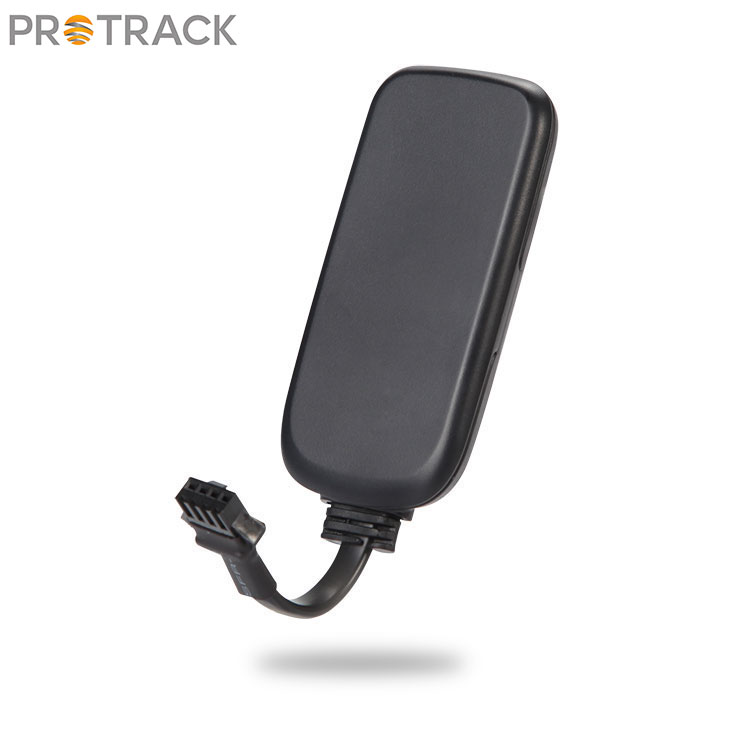Vehicle Tracker: Enhancing Safety, Efficiency, and Convenience
2025-03-07
In today's fast-paced world, managing a fleet of vehicles or even just keeping track of your personal vehicle has become increasingly important. Whether for personal use or for business, a vehicle tracker can provide invaluable benefits. These small, GPS-enabled devices offer a range of features that help enhance safety, improve efficiency, and offer peace of mind.
What is a Vehicle Tracker?
A vehicle tracker is a device that uses GPS (Global Positioning System) technology to monitor and track the location of a vehicle in real-time. Vehicle trackers are often installed in cars, trucks, or any other type of vehicle to provide location data to the owner or fleet manager. These trackers can be connected to mobile apps or web platforms that allow the user to view the vehicle’s location, speed, and other important data.
Vehicle trackers come in two primary types: hardwired and portable. Hardwired trackers are directly connected to a vehicle’s electrical system, making them ideal for long-term use. Portable trackers, on the other hand, can be easily moved from one vehicle to another and are typically powered by rechargeable batteries.
Benefits of Using a Vehicle Tracker
1. Enhanced Security
One of the primary reasons people install vehicle trackers is to enhance the security of their vehicles. With a tracker in place, you can always know where your vehicle is located, reducing the chances of theft. If your vehicle is stolen, the tracker allows you to quickly locate it and alert authorities. Many trackers come with additional security features, such as geofencing, which sends an alert if the vehicle moves outside a designated area.
2. Real-Time Monitoring
Vehicle trackers provide real-time monitoring, which is particularly beneficial for businesses that operate a fleet of vehicles. Fleet managers can monitor the location, speed, and behavior of each vehicle in real-time. This helps ensure that vehicles are being used efficiently, reducing the risk of misuse or unauthorized use. For personal use, this feature can help you track your car’s location, which is particularly useful in crowded areas like parking lots or if you frequently lend your vehicle to others.
3. Fuel Efficiency and Cost Savings
Tracking the movements of vehicles can also help improve fuel efficiency, which leads to significant cost savings. Fleet managers can use data provided by the tracker to optimize routes, reduce idle times, and avoid traffic. By analyzing patterns and identifying areas where fuel consumption can be minimized, businesses can cut down on overall fuel expenses.
For personal vehicle owners, understanding your driving patterns through a tracker can help you adjust habits to save fuel. For example, tracking data can indicate if you’re driving aggressively, which can lead to higher fuel consumption.
4. Better Fleet Management
For businesses that manage a fleet of vehicles, vehicle trackers offer a comprehensive solution for fleet management. Fleet managers can monitor the movement, status, and condition of vehicles, ensuring that everything is running smoothly. This can help reduce downtime, improve scheduling, and enhance overall efficiency. Additionally, vehicle trackers can provide data about maintenance needs, helping to keep vehicles in good condition and avoid unexpected repairs.
Trackers also offer insight into driver behavior, such as speeding, harsh braking, or idling, which can help improve driver safety and reduce the risk of accidents. With this data, fleet managers can implement driver training programs to ensure that all employees follow best practices behind the wheel.
5. Insurance Benefits
Some insurance companies offer discounts to vehicle owners who install a vehicle tracker. This is because vehicles with trackers are less likely to be stolen, reducing the risk for insurance companies. Additionally, some trackers can monitor driving habits, which may also lead to lower premiums if you are identified as a safe driver.
For fleet owners, the data gathered from vehicle trackers can be used to negotiate better insurance rates. Insurance companies may offer discounts based on the fleet's lower risk due to real-time monitoring and optimized driving behaviors.
6. Peace of Mind for Parents
Parents of young drivers can benefit from installing a vehicle tracker in their teenager’s car. This allows parents to monitor their child’s location, driving behavior, and whether they are following safe driving practices. If a teenager is speeding or not following the rules, parents can intervene and address the issue before it becomes a bigger problem. It’s a great way to ensure the safety of young drivers, offering peace of mind for both parents and teenagers.
How Do Vehicle Trackers Work?
Vehicle trackers use a combination of GPS, GSM (Global System for Mobile Communications), and sometimes Wi-Fi technology to provide location data. Here’s how they generally work:
1. GPS Technology: The tracker receives signals from satellites to determine the vehicle’s location.
2. Data Transmission: The GPS data is then transmitted via GSM or Wi-Fi to a central server or cloud platform.
3. User Access: The vehicle owner or fleet manager can access this information through a mobile app or web interface, allowing them to monitor the vehicle’s location and other metrics in real-time.
In addition to location tracking, some advanced vehicle trackers come with additional sensors that can monitor things like fuel levels, engine temperature, or tire pressure.
Applications of Vehicle Trackers
1. Personal Use
For individuals, a vehicle tracker offers peace of mind. It can help you locate your car if it’s lost in a parking lot or stolen. Additionally, it can provide valuable insights into driving habits, helping you improve fuel efficiency and avoid harsh driving behaviors.
2. Fleet Management
Businesses that rely on a fleet of vehicles can greatly benefit from vehicle trackers. They offer a way to monitor all vehicles in real-time, optimize routes, and improve overall fleet efficiency. This is particularly beneficial for logistics, delivery, or transportation companies.
3. Rental and Leasing Companies
Vehicle trackers can also be used by car rental or leasing companies to monitor their vehicles. This helps ensure that vehicles are returned on time and used within agreed-upon terms. Trackers can also provide information on vehicle health, helping companies stay ahead of maintenance needs.
Conclusion
Vehicle trackers are no longer just a luxury; they’ve become an essential tool for ensuring safety, improving efficiency, and managing vehicles more effectively. Whether you're an individual looking to protect your vehicle or a business managing a fleet, vehicle trackers offer a wide range of benefits. From real-time monitoring and enhanced security to fuel efficiency and cost savings, a vehicle tracker can help you make smarter, more informed decisions. As technology continues to advance, vehicle trackers will only become more sophisticated, offering even more ways to stay connected and in control of your vehicle.



